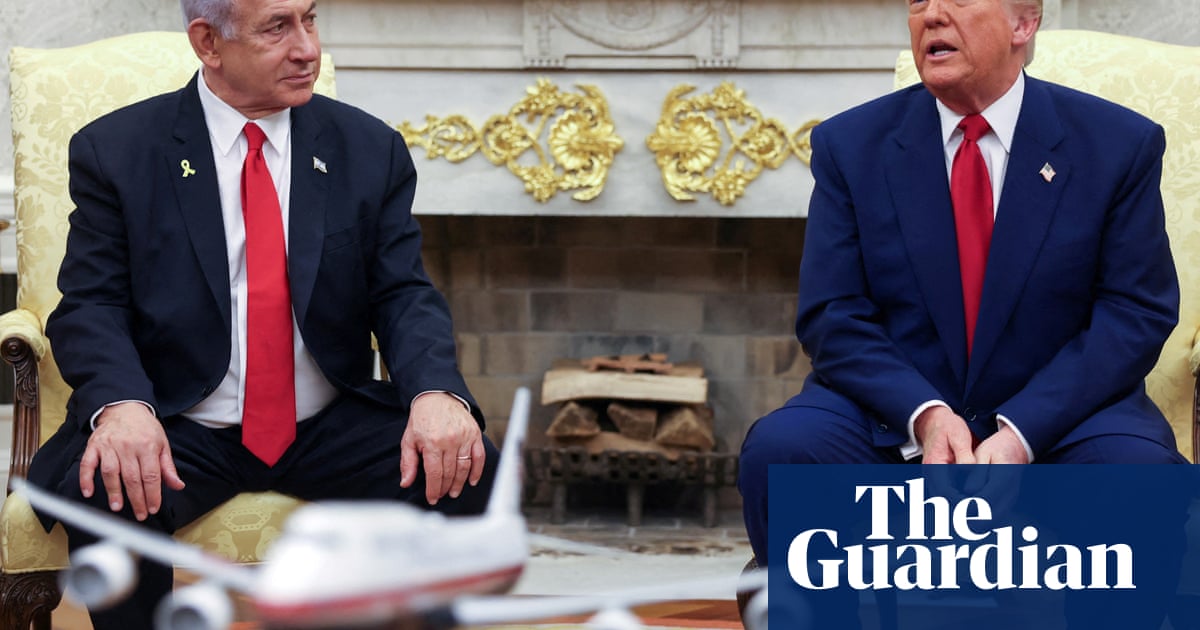Trump's Bold Call: Cancel Netanyahu's Corruption Trial Amidst Political Turmoil

In a move that reverberates across international political landscapes, former U.S. President Donald Trump has entered the fray of Israeli politics, calling for the cancellation of Benjamin Netanyahu's protracted corruption trial. In a fervent social media post, Trump labeled the proceedings against Netanyahu as a 'witch hunt,' echoing a term he frequently used to describe his own legal battles. 'Bibi and I just went through HELL together, fighting a very tough and brilliant longtime enemy of Israel, Iran, and Bibi could not have been better, sharper, or stronger in his LOVE for the incredible Holy Land,' Trump declared on Wednesday night, invoking the familiar moniker for the embattled Israeli leader.
Trump's intervention comes as no surprise to those familiar with his own legal entanglements. The former president, who has faced a slew of criminal charges and convictions, often claims these are politically motivated. He expressed his solidarity with Netanyahu, stating he had 'just learned that Bibi has been summoned to court on Monday' and floated the idea of a pardon for the 'great hero.' Trump further asserted, 'It was the United States of America that saved Israel, and now it is going to be the United States of America that saves Bibi Netanyahu.'
Netanyahu, who made history in December by becoming the first sitting Israeli prime minister to testify as a defendant in a criminal trial, has vehemently denounced the charges as an 'ocean of absurdity.' The 75-year-old leader faces allegations of fraud, breach of trust, and accepting bribes across three separate cases. Among the accusations, Netanyahu is said to have received lavish gifts, including cigars and champagne, from a billionaire Hollywood producer in return for personal and business favors. Additionally, he is accused of manipulating regulatory measures to benefit media moguls in exchange for favorable press coverage of himself and his family. Netanyahu has consistently denied any wrongdoing, framing the charges as a vendetta orchestrated by a hostile media and a biased legal system intent on dismantling his extended tenure.
The trial, which commenced in May 2020, has experienced numerous delays, often at Netanyahu's behest, citing geopolitical tensions such as the conflict in Gaza and subsequent hostilities in Lebanon. As of now, the scheduling of the next hearing remains uncertain, leaving the Israeli political scene in a state of flux.
This latest development underscores the intricate web of alliances and enmities that define global politics. Trump's outspoken support for Netanyahu not only highlights their personal camaraderie but also reflects broader geopolitical dynamics, particularly the U.S.-Israel relationship. As Netanyahu's legal saga unfolds, the implications of Trump's intervention continue to ripple through diplomatic channels, raising questions about the intersection of justice and political influence.
🔮 Fortellr Predicts
Confidence: 78%
Donald Trump's recent call for the cancellation of Israeli Prime Minister Benjamin Netanyahu's corruption trial and his suggestion of a pardon have potential to catalyze significant diplomatic and political movements in both the U.S. and Israel. In Israel, Trump's remarks could embolden Netanyahu’s supporters, rallying them around a narrative of judicial bias and political persecution. This might result in increased public demonstrations advocating for the trial’s dismissal or delays, pressuring Israel's judicial system. Conversely, opposition factions could be galvanized to reinforce the integrity of the judiciary and resist foreign interference—especially from an allied nation like the U.S. The Israeli government, primarily composed of Netanyahu's political allies, might lean towards leveraging Trump's support in political maneuvers to delay the trial further, possibly invoking national security concerns due to ongoing regional instability. In the U.S., Trump's intervention may draw significant criticism from political opponents and legal experts who view such actions as overstepping diplomatic decorum, thereby intensifying partisan divides domestically. This situation aligns with historical patterns where the show of external political support exacerbates existing domestic tensions, as witnessed in other international judiciary cases. The geopolitical context, primarily U.S.-Israeli relations, may witness tensions as formal diplomatic channels remain cautious, balancing between showing public support for Netanyahu's government while preserving the impartiality that allies expect from each other's judicial processes.